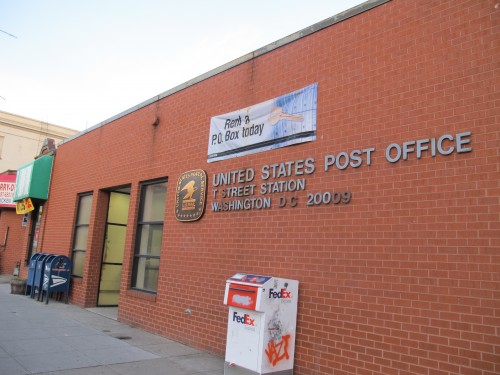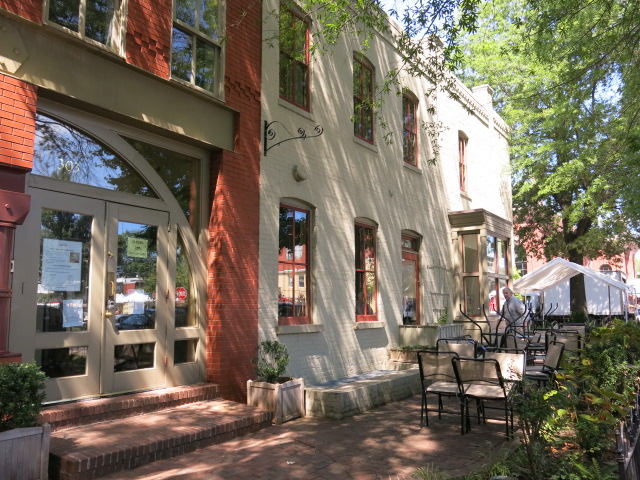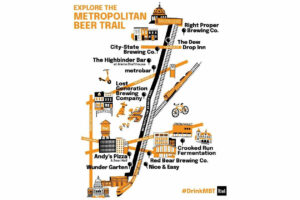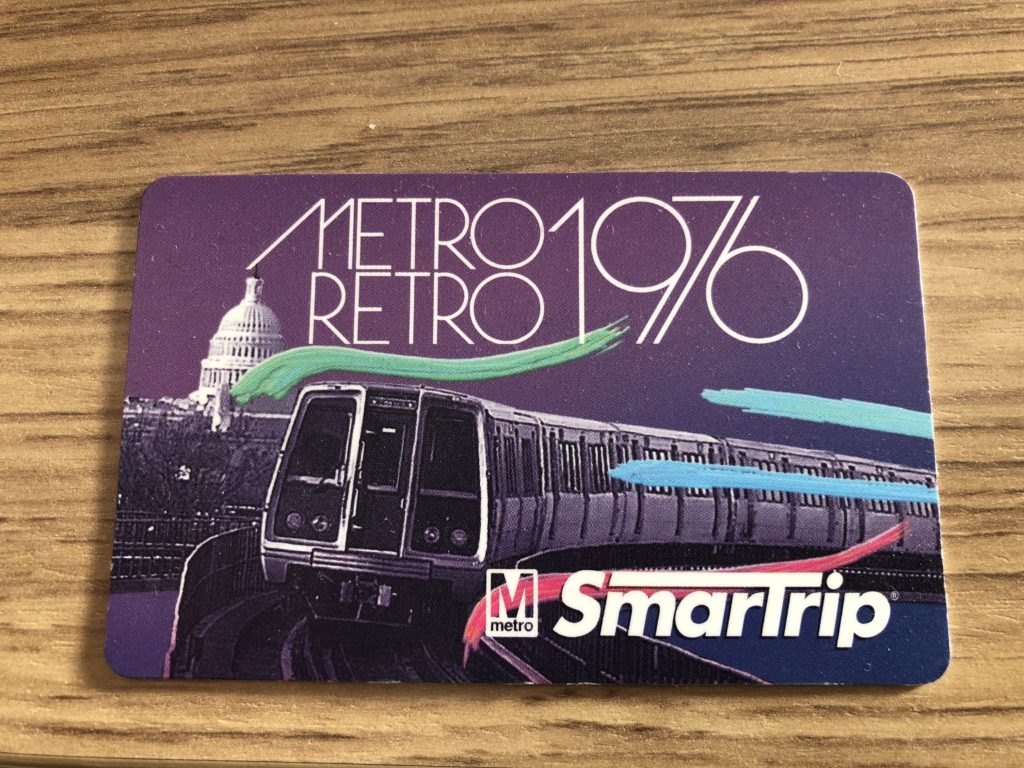
Ed. Note: If you missed our look back on commemorative smartrip cards, you can see them here.
From Council Member Charles Allen’s Office:
“Tomorrow, Councilmember Charles Allen will introduce the Metro For DC Amendment Act of 2020, a proposal that would give DC residents a monthly subsidy of $100 on their SmarTrip card and establish a dedicated fund to invest millions in improved bus services in neighborhoods long neglected for transit planning.
“If you know the history of WMATA, you know actually funding and building the system we have today was a modern miracle. Today it remains the secret to our region’s success. But it is time for us to dream big again. If you are a DC resident, your public transit system should be a benefit of simply being a resident, just like our schools, libraries, and roads,” said Councilmember Allen. “Giving District residents $100 a month to use on public transit would put thousands of dollars back into families’ bank accounts each year. It ensures transit agencies have to earn those riders, which in turn would reduce congestion and carbon emissions from driving.”
Councilmember Allen continued, “However, we need to do more. We need transit equity, which means taking steps to fix historic wrongs. We need big investments in better bus service, and it needs to happen in communities that don’t have spare time to advocate or spare dollars to spend on transit. Let’s get serious about new bus lines, more reliable service, and getting buses around the city faster. And let’s make sure those improvements happen first in communities that are always the last to see new service and the first to see cuts.”
Part 1: A Dedicated Fund for Bus Improvement in Low-income, Transit-Dependent Communities
The proposed dedicated bus fund, called a Transit Equity Fund, that would annually set aside millions that could only be spent in designated “transit priority need areas.” That includes:
o Adding new non-regional WMATA or DC Circulator service in areas identified in the MoveDC Plan as transit priority need areas;
o Expanding service hours or shortening headways in transit priority need areas;
o Producing studies that identify additional transit priority need areas;
o Installing bus infrastructure: dedicated bus lanes, bus shelters, and future improvements such as kiosks to load SmarTrip cards outside of Metrorail stations
Right now, access to public transit is not equal across the District. Residents living in Wards 7 and 8 and parts of 4, 5, and 6 have some of the longest, and costliest, commutes in the District. This is especially true for residents who transfer from bus-to-rail regularly and pay higher fares for longer rail trips. Census data shows us these are often the same households already burdened by housing and transportation costs. Just a little over half of the households in Ward 8 own a car, compared to 64% citywide, meaning these residents are far more dependent on good bus service. The dedicated fund to improve bus service is meant to reach those riders first and prioritize their needs.
Part 2: A $100 Monthly Transit Subsidy for Every DC Resident
Metro For DC would also allow DC residents to sign up and receive a monthly $100 balance on a registered SmarTrip card. It is important to recognize that the balance would not exceed $100, which helps limit costs for people who sign up but ultimately do not ride or are not regular WMATA users.
The program would be for anyone over the age of 18 and would complement the existing Kids Ride Free program, which serves more than 46,000 DC students. It would also exempt DC residents who receive the federal employee WMATA subsidy or any state or local government transit benefit.
The program would be rolled out in stages, prioritizing first low-income families earning 300% of the federal poverty level. It would be phased in after that by different income levels as city revenue meets certain thresholds above what is budgeted, to ensure the District can afford the program moving forward.
How to Pay For It (And What Will This Cost?)
Councilmember Allen has proposed paying for Metro for DC by dedicating future revenue increases above budgeted revenue, and rolling out the program in four parts based on income levels. The first tier would be residents earning 300% or less of the federal poverty level, which for a family of four, would be $26,200.
“The District is in phenomenal financial health and has experienced revenue increases each year for the past five years,” said Councilmember Allen. “I believe that money should be put right back into the hands of District residents. We can do this without raising taxes and we’ll do it only when we know we can afford to.”
Since February 2019, the Office of the Chief Financial Officer has increased the expected revenues for Fiscal Year 2021 by $331 million, which would more than pay for Metro For DC in its entirety. The program is estimated to cost anywhere between $51 million and $151 million, depending on any negotiated rate discounts and actual ridership.
Already, Chairman Phil Mendelson, Councilmember Mary Cheh, Councilmember Kenyan McDuffie, Councilmember Robert White, Councilmember Brianne Nadeau, Councilmember David Grosso, Councilmember Trayon White, and Councilmember Anita Bonds have signed on as co-introducers. Speaking at today’s press conference: Leonard Edwards from Bread for the City, Alicia Horton, Executive Director of Thrive DC, and Kathy Hollinger, President and CEO of the Restaurant Association Metropolitan Washington.
The Metro For DC Amendment Act of 2020 will officially be introduced by Councilmember Charles Allen on Tuesday, March 3 during the Council’s regular legislative meeting.”
Recent Stories
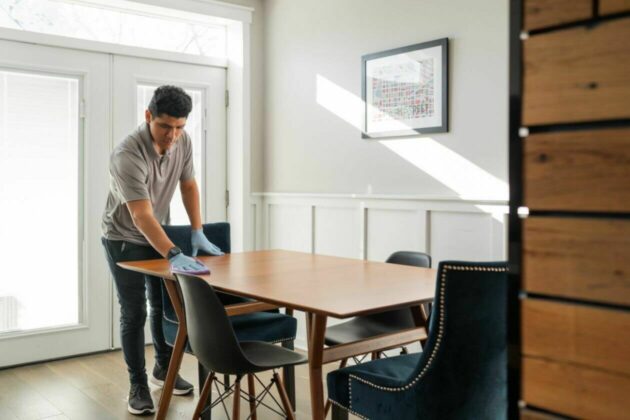
For many remote workers, a messy home is distracting.
You’re getting pulled into meetings, and your unread emails keep ticking up. But you can’t focus because pet hair tumbleweeds keep floating across the floor, your desk has a fine layer of dust and you keep your video off in meetings so no one sees the chaos behind you.
It’s no secret a dirty home is distracting and even adds stress to your life. And who has the energy to clean after work? That’s why it’s smart to enlist the help of professionals, like Well-Paid Maids.

Unlock Peace of Mind for Your Family! Join our FREE Estate Planning Webinar for Parents.
🗓️ Date: April 25, 2024
🕗 Time: 8:00 p.m.
Metropolitan Beer Trail Passport
The Metropolitan Beer Trail free passport links 11 of Washington, DC’s most popular local craft breweries and bars. Starting on April 27 – December 31, 2024, Metropolitan Beer Trail passport holders will earn 100 points when checking in at the
DC Day of Archaeology Festival
The annual DC Day of Archaeology Festival gathers archaeologists from Washington, DC, Maryland, and Virginia together to talk about our local history and heritage. Talk to archaeologists in person and learn more about archaeological science and the past of our


